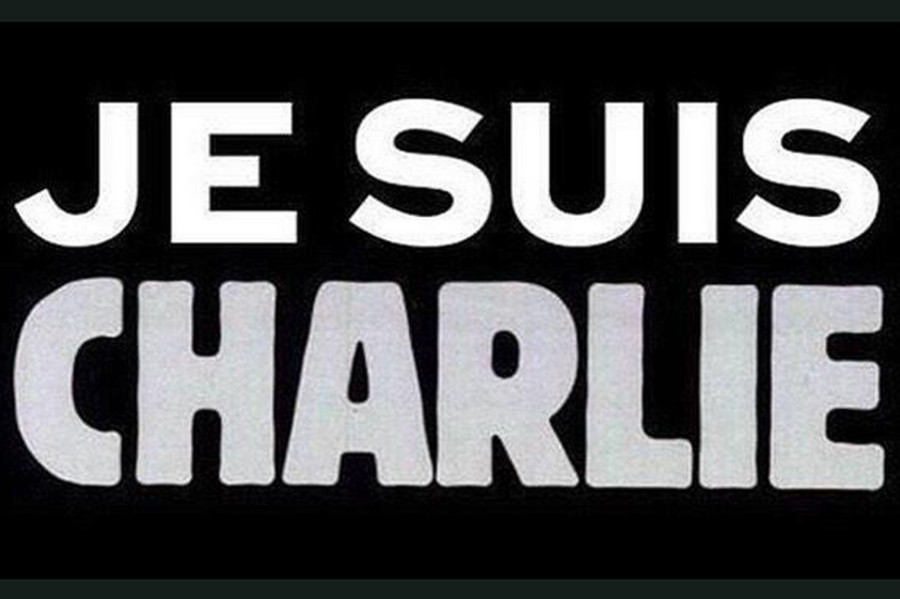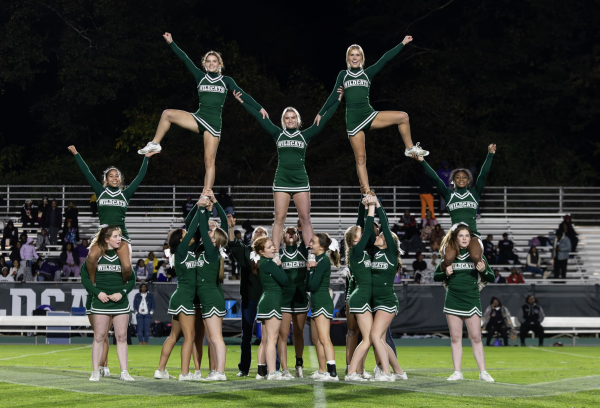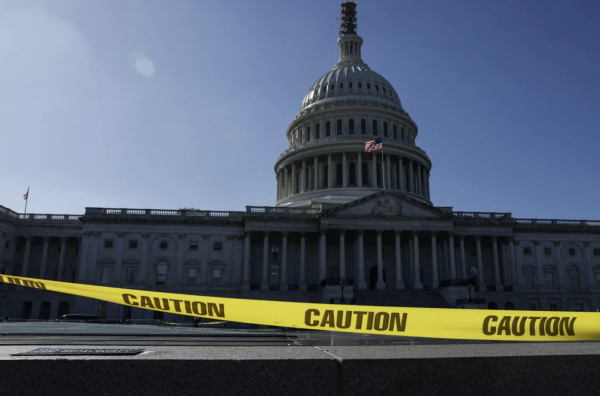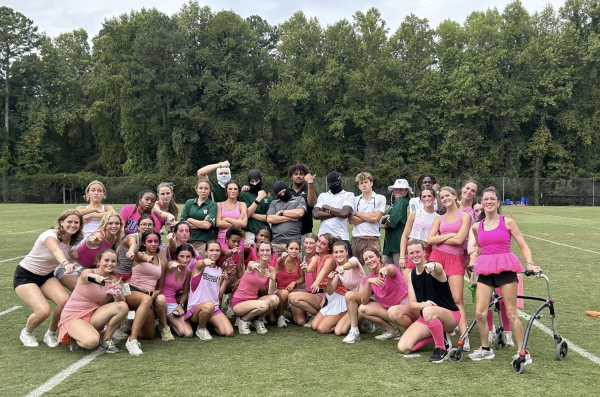Charlie Hebdo and The Interview: The importance of free speech
I love the Bi-Line, as everyone unfortunate enough to be in my AP European History class knows. On the last Friday of every month, I excitedly toss hot-off-the-press issues on which my fellow staff members and I have spent hours working to my bemused classmates, much to Mr. Drake’s consternation. However much I enjoy articles about band concerts and cross country meets, my favorite issue of the year is by far our April Fool’s Issue, in which we satirize the administration and daily life at Westminster, thereby blurring the lines between journalism and entertainment. Some of my favorite articles from past April Fool’s issues gently rib faculty members; for example, last year we ran a short article lampooning Mr. Justice’s famously flowery prayers by “reporting” on how they had been rejected from Embryo. The Bi-Line enjoys great artistic freedom in this issue, and our articles are usually met with good-natured laughs from the victims. As a journalist and an editor, I think I can speak for the whole Bi-Line staff when I say I am so grateful to have this freedom of the press, especially in the context of entertainment.
Unfortunately, this creative liberty usually afforded to humorists has recently been threatened twice in two short months. First, North Korean hackers breached Sony Entertainment’s computer system, leaked emails, and made death threats in response to the company’s impending release of a movie, The Interview, which centered around an attempt on North Korean dictator Kim Jong-Un’s life. Second, on January 7 of this year, two gunmen murdered twelve and wounded eleven people in the Paris headquarters of Charlie Hebdo, a weekly satirical magazine famous for parodying right-wing politics as well as extreme Catholicism, Judaism, and Islam. This was the second time the magazine had been attacked by Muslim extremists: in November 2011, the magazine’s office was firebombed after the cover of a forthcoming issue depicting a cartoon of Muhammad (in Islam, any depiction of Muhammad is forbidden) was circulated on social media.
The Sony situation is ultimately a victory for free speech in entertainment; despite Sony’s initial announcement that the company would not release The Interview, the movie was indeed eventually released in theaters and on-demand after outside pressure to not acquiesce to North Korean demands.
Unfortunately, despite a popular #JeSuisCharlie Twitter hashtag, the Charlie Hebdo attacks have been met with much more controversy, with some saying they feel no sympathy as the magazine brought the attack upon itself by pushing the envelope in editorial content. I strongly disagree with this anti-Charlie Hebdo view. In our pluralistic modern society, satirists should not have to censor themselves according to the demands of a vocal and violent minority. I don’t necessarily agree with Charlie Hebdo’s anti-Islam content, but French law had consistently affirmed its right to publish such controversial content. French freedom-of-speech laws are more restrictive than American ones, which are based on the First Amendment: “Congress shall make no law respecting an establishment of religion, or prohibiting the free exercise thereof; or abridging the freedom of speech, or of the press; or the right of the people peaceably to assemble, and to petition the Government for a redress of grievances.”
In 1969, the Supreme Court protected a Ku Klux Klan member’s racist and hate-filled speech and created the “imminent danger” test to permit hate speech. The court ruled in Brandenburg v. Ohio that, “the constitutional guarantees of free speech and free press do not permit a state to forbid or proscribe advocacy of the use of force, or of law violation except where such advocacy is directed to inciting imminent lawless action and is likely to incite or produce such action.” This ruling is the foundation for the current American constitutional interpretation that “hate speech” is protected under the First Amendment unless it is meant to provoke violence.
Meanwhile, in France, the “Law on the Freedom of the Press of 29 July 1881” guarantees freedom of the press, subject to several prohibitions. Article 24 prohibits anyone from publicly inciting another to discriminate against, or to hate or to harm, a person or a group for belonging or not belonging, in fact or in fancy, to an ethnicity, a nation, a race, a religion, a sex, or a sexual orientation, or for having a handicap.
Although France, unlike America, has these specific hate speech laws, the laws are enforced in a more nuanced way than their absolutist wording would imply. For example, in 1989, a court in Paris refused to ban the novel The Satanic Verses by Salman Rushdie for being an insult to Muslims because the novel was not forced on anyone. In 2006, Charlie Hebdo released a special issue that featured cartoons mocking Islam. A Muslim organization initiated criminal proceedings against then Editor-in-Chief Phillippe Val for insulting a group of people because of its religion. In March 2007, the court of first instance acquitted Val. The first court of appeal confirmed the lower court’s judgment on the ground that the cartoons targeted only terrorists or fundamentalists—not the whole Muslim community. Similarly, current Editor in Chief Gerard Biard has repeatedly said that the newspaper does not “attack religion, but does when it gets involved in politics.” Religious tension in the famously secular France has become a political issue and is thus fair game to criticize without being discriminatory. The root of the attacks is not merely Muslim extremism; it’s also the complete and utter lack of respect for the importance of freedom of the press.
Ultimately, Charlie Hebdo’s edgy content was protected under the French definition of freedom of the press and is legally not hate speech. Thus, the argument that Charlie Hebdo somehow deserved the attack because the editorial staff was guilty of hate speech is fallacious.
Moreover, political satire is incredibly important in this day and age. In creating controversial content, Charlie Hebdo is able to provoke dialogue on important political issues in a way that traditional media outlets constrained to journalistic standards are not able to.
We must fight to protect freedom of speech, but it’s also crucial to remember not to take out our anger on the entire Muslim religion. Yes, the terrorists were Muslim, but so were Lassana Bathily, a worker at the kosher supermarket who hid customers in a freezer when the Charlie Hebdo terrorists attacked, and Ahmed Merabet, a police officer executed by the gunmen on a street outside the Charlie Hebdo offices. Furthermore, Muslims are more likely to be victims of Islamic terrorism than non-Muslims; according to the Global Terrorism Index, 80 percent of all the deaths from terrorism in 2013 were in Muslim-majority countries Iraq, Afghanistan, Pakistan, Nigeria, and Syria.
In the aftermath of the attacks, the words of French philosophe Voltaire’s “Treatise on Tolerance” rang especially true for me: “Think for yourselves and let others enjoy the privilege to do so too.” The moment we allow terrorists to censor our humor is the moment that we can no longer call ourselves part of a society committed to democratic ideals.
Ultimately, I am proud to say that “Je Suis Charlie.” And if you are committed to the bedrock of free speech that both our country and France were built on, you should be, too.








